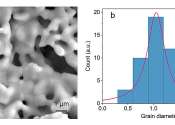New physics-based self-learning machines could replace current artificial neural networks and save energy
Artificial intelligence not only affords impressive performance, but also creates significant demand for energy. The more demanding the tasks for which it is trained, the more energy it consumes.
Sep 8, 2023
0
968









